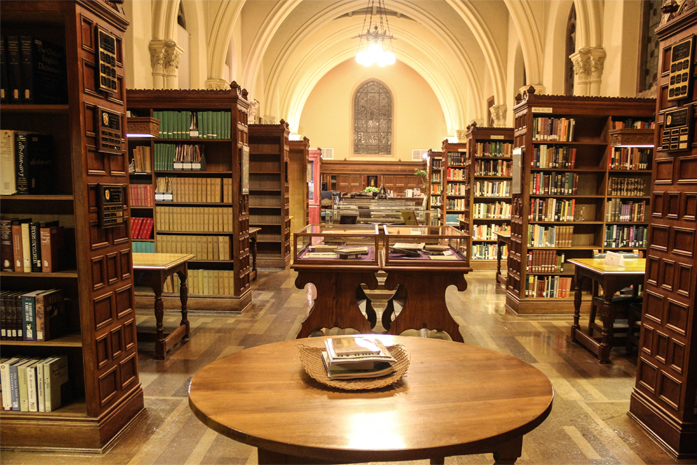Anna Mitchell ’22
The other day, I walked into Denison, anticipating that hallowed book-song silence and air-conditioned serenity. Thinking I might plunge into a reading I’d put off, or finish an essay, etc. All those aged leafy pages bound up in hides and string and glue. All those words. But as I sunk down into the couch — and it rolled back slightly, as it sometimes does — I noticed their faces.
They live in the mantelpiece. There are five of them. Five figures set between arches. They are grey-blue, stony, raised reliefs, something kids might run their hands over but that you can’t quite etch with waxy crayons on printer paper. They are people, clearly, yet their features are dulled, as if their antiquity is manifest in the ambiguity of their noses and eyes, the everydayness of their rounded ears and cheeks. Aristotle – Euclid – Socrates – Pythagoras – Homer.
I know these faces. They are the faces of men. They bear the names of men. I have been taught to respect them. Beyond that, to quote them — to reference, relate, study, engage, admire. Here they stand, engraved, pillars of the great canon of human intellectual development. Are they not magnificent?
A simmering anger blooms in my chest. I realize: in our hallowed spaces, where we worship knowledge as sacred, learning as holy, we worship men as such, too. We immortalize the man’s voice, we transcribe his words, we observe and critique the women and others he sculpts or constructs.
The anger grows and morphs and threatens to boil over into rage. You see, I do not hate these faces. I do not blame them, nor their teachings, their queries, their records. In fact, I feel anchored in the sincere gravity of their contributions. What I wish, rather, to crush in my fist and throw on the ground and stomp on is the unquestioned space we — the western world — allot for them. In the world’s collective memory, he takes up space willingly. He does it on the bus, too. On sidewalks. In restaurants.
At a traditionally women’s college, an institution dedicated to empowering marginalized voices, is it not our duty to diversify the canon of revered academic figures? Is it not our responsibility to etch into stone those history has cast aside, belittled, or deemed unworthy? It is not our charge simply to remember them?
So I observe this mantelpiece. I notice pock marks, flecks of mineral, light, and the quiet hallmarks of age. My anger sits with me. I am not explosive-angry, shouting-angry, bleeding-angry. It’s that undeniable and irrepressible simmer, hissing at me, within me, still on the verge of boiling through my body. Hysteria, is that you?
I give my permission for these men to stay right where they are, though they don’t ask for it and they certainly don’t need it. I give it anyway. One day maybe I’ll know them better and revoke that permission. But for now, they can stay. They are individuals who indisputably contributed to their respective societies and they embellish a magnificent library that is home to rare and varied collections, including the remarkable Ellen Browning Scripps papers. Let us leave these helpless faces be, and focus instead on what they represent. Let us not dismantle these figures, but rather 1) the othering of women’s voices, 2) the homogeneity of remembrance, 3) the exclusion of “non-traditional” identities from monuments 4) the patriarchy, because we might as well aim high.
Image Credit: Scripps College



